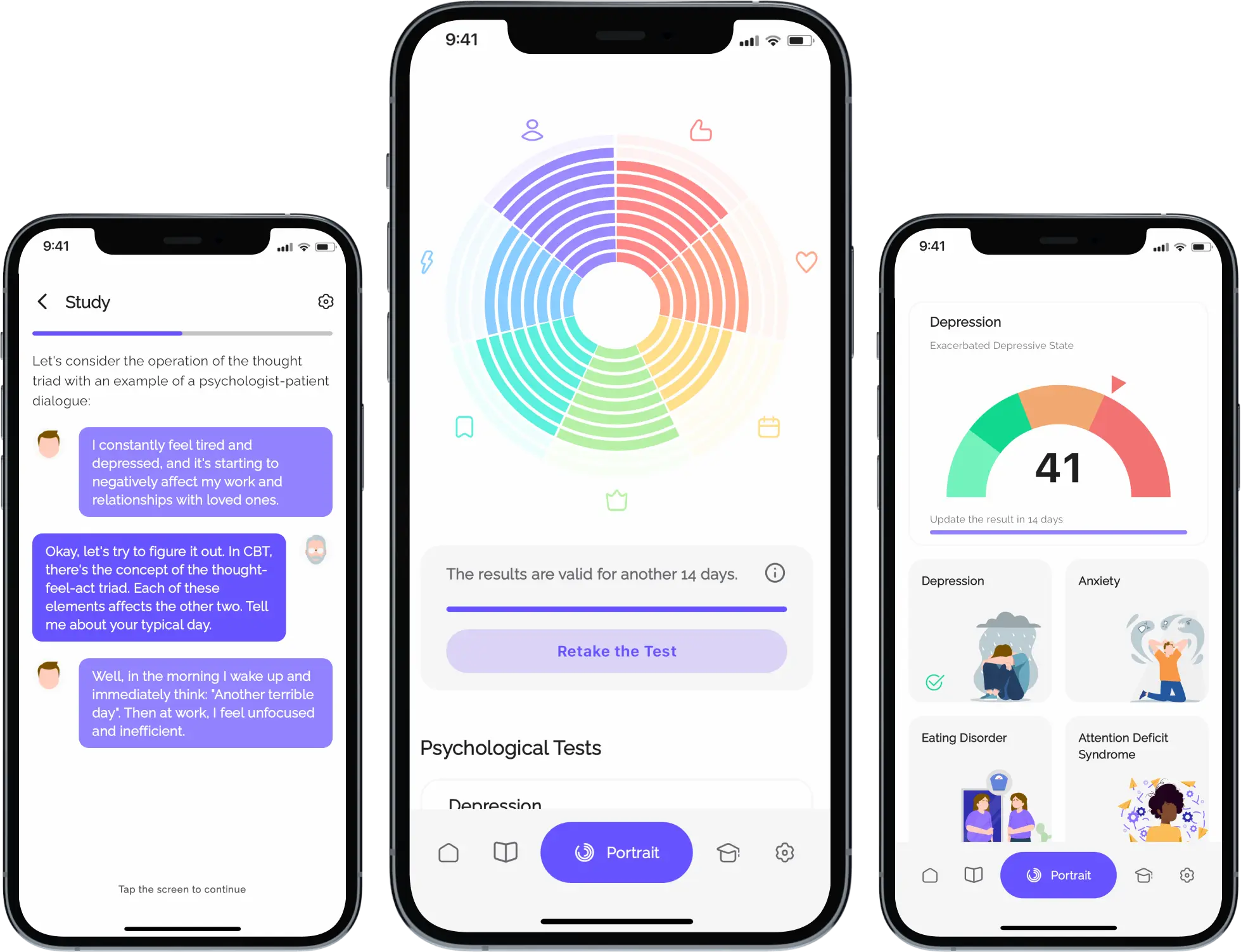
In any situation, no matter the outcome, I am the reason.
Missed the train—took too long to get ready. People across from me on the subway are laughing—they must be laughing at me. My partner is in a bad mood—so I must have done something wrong.
Sound familiar?
If so, then we are dealing with the belief in one’s own omnipotence.
Each of us has encountered personalization to some extent.
It is a treacherous psychological trap that makes you feel like the center of the universe and take responsibility for much of what happens around you.
You are convinced that people around you are reacting solely to you, that their actions, thoughts, and feelings entirely depend on your behavior, even though this is beyond your control.
More content in our app
You're only seeing a portion of the content. In the app, you'll find numerous interactive articles. Additionally, there are psychological tests to track your mood dynamics, a daily planner, an automatic thought journal, and much more!

But you torment yourself, condemning yourself and feeling a crushing sense of guilt.
Paradoxically, the belief in your own omnipotence and omniscience limits you, plunging you into anxiety and reducing your efficiency.
How does personalization manifest?
For example:
With this style of thinking, it doesn’t matter who is actually to blame—the guilt still feels like it’s yours. What do you think this can lead to? Of course, to stress, apathy, anxiety, self-esteem issues, and even depression.
Why is personalization dangerous?
Guilt inevitably creates a scenario of punishment, without your consciousness knowing it
Vadim Zeland
This type of belief forms in childhood.
It is known that children’s thinking is egocentric, meaning a child sincerely believes that they are the cause of everything happening around them.
For example, it is completely normal for three- to four-year-old children to believe that the sun rises because they woke up and sets when it’s time for them to go to bed.
However, many adults, even as they grow up, still use elements of egocentric thinking in their daily lives.
Family or societal pressure can make a person feel responsible for the well-being of others. For example, a child who is forced to care for their parents at an early age.
Self-esteem issues can be both a consequence and a cause of such beliefs.
People with low self-esteem are often prone to personalization. They may believe that they don’t deserve to be treated well, and thus attribute negative events to their own actions or shortcomings.
Traumatic experiences in the past can also contribute to personalization. At an early age, there is a high likelihood of a child’s thinking becoming distorted, leading them to believe that everything that happens depends on them.
For example, if someone often heard phrases like “It’s all your fault” or “You never do anything right” from their parents during childhood, they might carry this “label” throughout life, attributing all negative events to their own fault.
In some cultures, it is customary to take responsibility for everything that happens around you. This can lead people to be prone to personalization, even if they are not to blame for what happens.
Whatever the reasons for the formation of beliefs, we can change our thinking at any stage of life if we have the motivation.
In the next chapter, we will, as usual, discuss the main recommendations for dealing with the belief in your own omnipotence.
You cannot blame yourself for everything if you do not consider yourself omnipotent.
Mikhail Bulgakov








